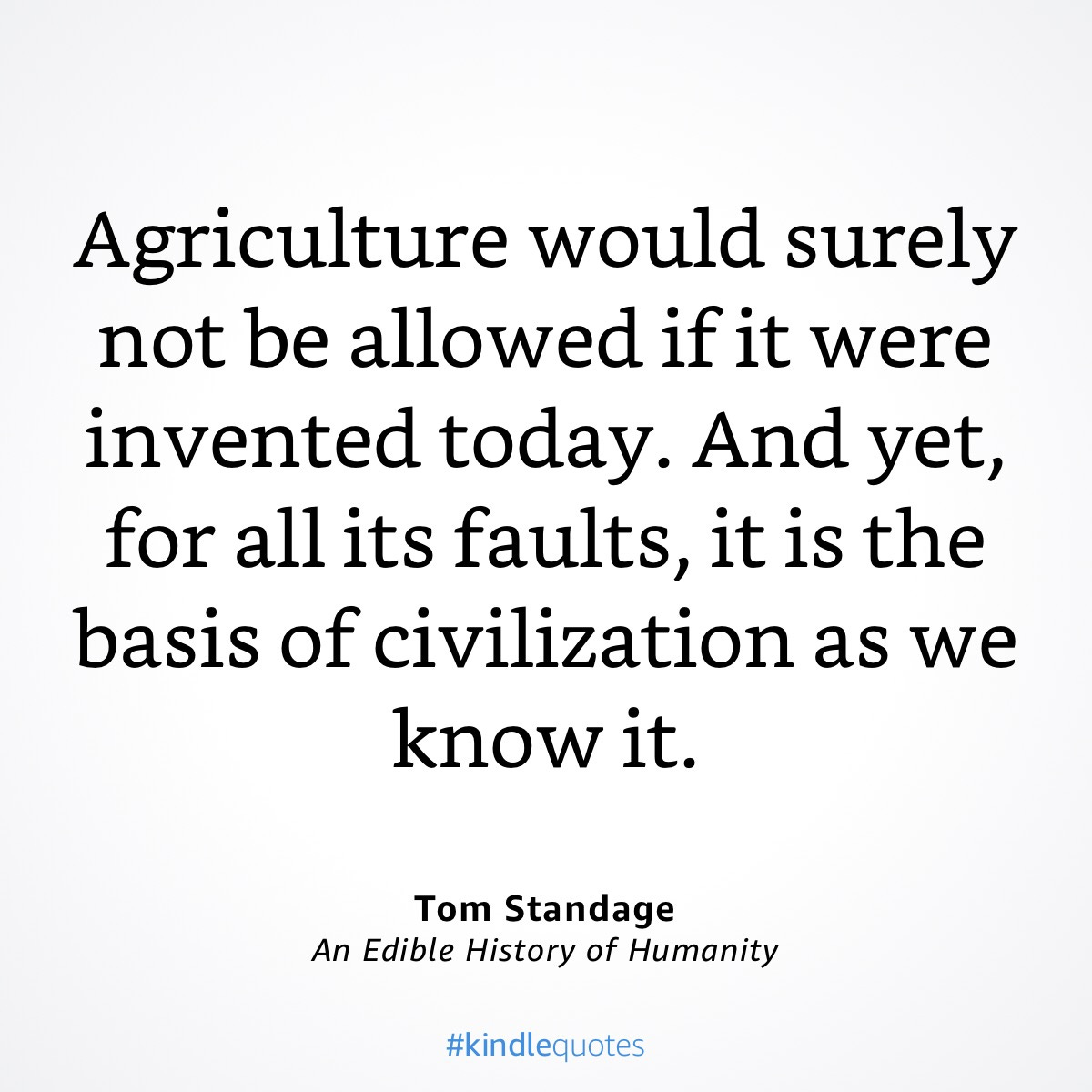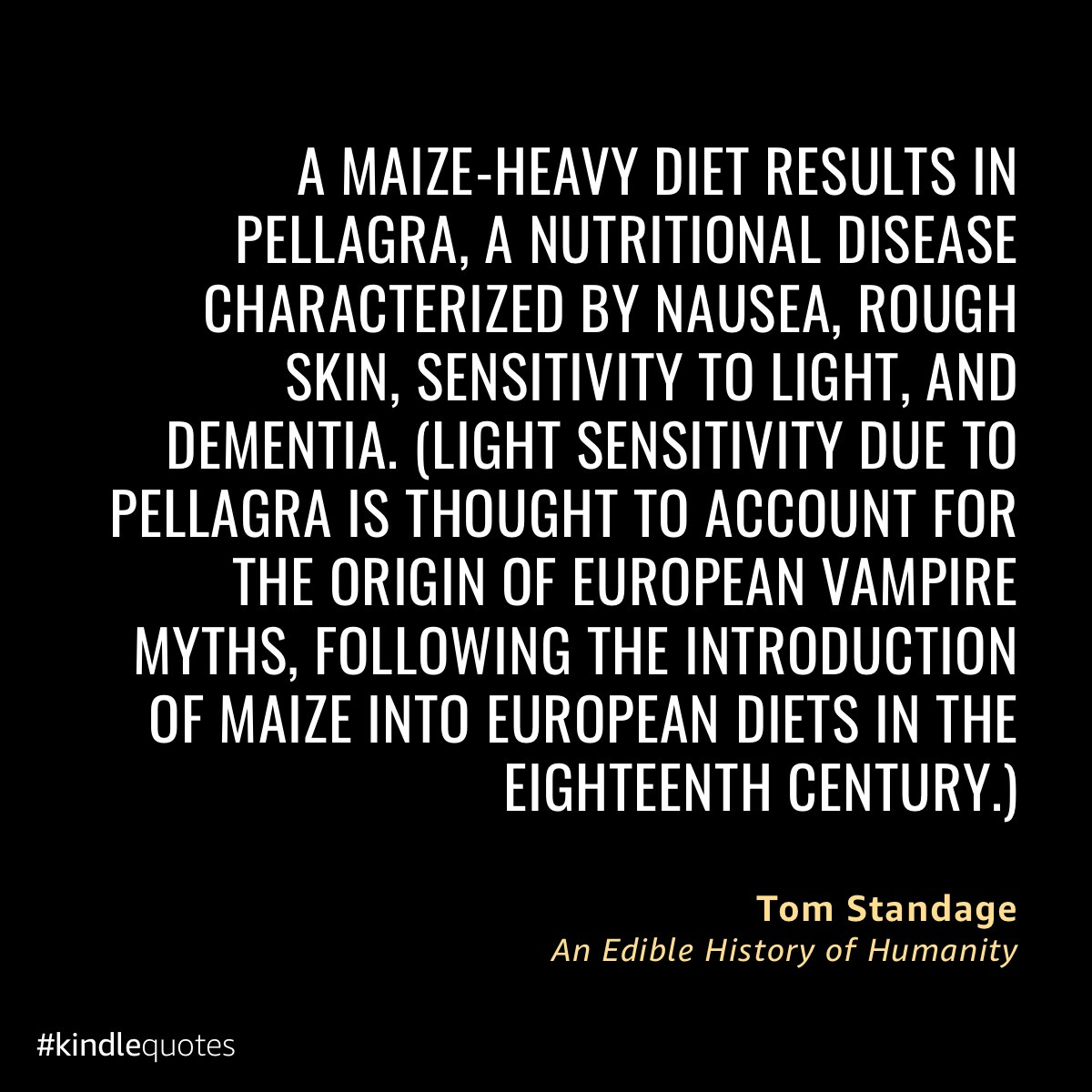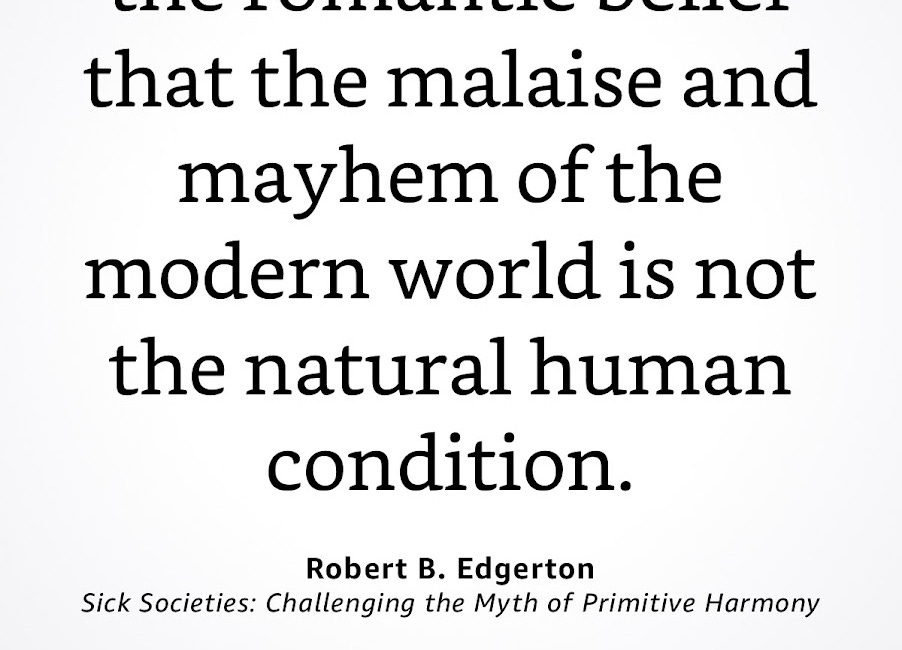I dislike reviewing a book I didn’t finish, but I wanted to talk about why I didn’t finish this book, don’t recommend it, and the underlying problems within. I really enjoy food history and food anthropology, but I have learned the hard way to look at the publication dates on books and err on books at least twenty years old, as the more recent ones are full of agenda. The problem with being full of that? It doesn’t leave room for the author to spend on facts and true information, as he twists and turns through what he’s allowed to have published, lest he run afoul of the censors. In this case, I suspect that’s both private in the publishers and editors, and public as in governmental overreach.
I’m talking about An Edible History of Humanity, by Tom Standage. I picked it up when it was on sale, because I really thought the concept was a great one. I’m sad the book didn’t live up to my expectations, but now I know not to try reading anything else by this author. As Alma Boykin says in her recent post, “Too much now in my then.”
The first problem I had with this book was one that popped up and made me go ‘um, what? No.’ and this was his claim that pellagra, due to diets deficient in vitamins when the people are relying heavily on maize, was the origin of the European vampire myths. The timing on this is easy to check, and glaringly wrong. I’m no expert in Eastern European history, but I do dabble in mythology, and I have a friend who is an expert and was almost speechless when I mentioned this to her in passing. Vampire myths have been around far longer than maize has been grown and eaten in Europe. So, a failure in research, red flag one.
He spends a fair amount of the first part of the book talking about how agriculture came into being, and how it enabled civilization. Having read Sick Societies not all that long ago, I was eyeing some of his conclusions with skepticism, knowing that hunter-gatherer peoples living on the brink of starvation are certainly not a romantic idea destroyed by the growth of enough food to allow babies to thrive even in a bad crop year. Now, that’s a book which pulls no punches in it’s assessment of reality.
Standage, however, does pull his punches. I haven’t looked, and probably won’t bother to, but I have a strong suspicion that this author lives in Britain, for a very specific and strong bias that starts early in the book, and becomes glaringly obvious as he begins to discuss the slave trade and it’s connection with sugar production. Earlier in his discussion of the Silk Roads, I’d brushed past the non-mention of the slaves which would have been a big part of the trading by the Muslims, thinking Standage was focusing on food. Slaves, though, take their tastes and cooking styles along with them, so he could and probably should have mentioned that. Still. When he started to talk about the African slave trade and completely elided over the Arab slave traders which are well documented and unavoidable? I realized I was likely seeing self-censorship, at best, in an attempt to avoid being prosecuted under current British laws. For me, this is both sad, and means that the whole book is questionable. I can’t trust anything he says, and if I’m going to have to go do the research to validate, there’s no point in my reading this book, I’ll read something else, anything else.
When he started to speak approvingly of Malthus, I threw all the red flags at the book and walked away from it. The unspeakable horrors of manmade famines in the nineteenth century and beyond: the Irish Potato Famine, Stalin’s Holodomor, Pol Pot’s Killing Fields, Mao’s Cultural Revolution. None of those had any connection to Malthus’ theories, but to political maneuverings and would have been avoided otherwise. Humanity is capable of growing all the food it needs. I should probably re-read and do a proper review of Julian Simon’s The Ultimate Resource to get the bad taste out of my mouth.
The current war on farmers is a bad thing for humanity in general. A ‘pop’ history book talking about how agriculture is bad for us? Eesh. No, I didn’t finish reading it, and I’m not going to. I wasn’t compensated for wasting my time on this book, so I don’t have to!








I've got a stack of Icelandic and Norwegian Medieval vampires that call nonsense on him and his pellagra. What does he think the dead did in 900? Just lie there under the hill? Pshaw.
The number of intellectual types who think they're going to do well when there's a big change is astounding.